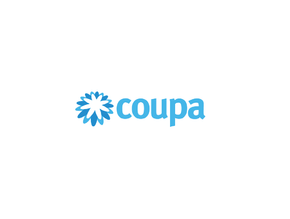How procurement can be a force for good in 2021 and beyond

Last year, procurement helped firms find savings, collaborate with suppliers and navigate supply chain risk in the wake of COVID-19. This highlighted procurement’s importance and solidified its place in boardroom discussions. However, as organisations start to recover from the pandemic’s impact, procurement teams must look at new ways to demonstrate their wider value and support business objectives if they are to maintain their slot on the boardroom agenda.
While risk mitigation and cost savings are important, in 2021, procurement leaders can go further by contributing to Corporate Social Responsibility (CSR) measures. This will underline procurement’s position as a strategic advisor while also driving positive change. The CPOs of the UK FTSE 100 have a huge amount of spending power. This power can translate into positive changes that drive CSR while delivering on business objectives. Organisations will be under greater pressure to act, with growing government regulations and consumer and employee expectations. Over the next year, procurement teams will become a force for good as organisations make the following adjustments:
Organisations will need to support smaller suppliers with prompt payments
As the pandemic caused many to reduce operations, late payments have compounded financial problems for suppliers facing liquidity pressure. While larger suppliers have the equity to hold out for longer without payment, SMEs can’t always last and face the risk of running out of funds altogether. Unfortunately, the FSB found that 62% of small businesses have been subject to late or frozen payments during the pandemic. In fact, £23.4 billion in late payments are currently owed to small businesses in the UK, impacting cash flow and threatening the survival of small firms, which in turn would cause gaps across the supply chain.
Supplier failure – particularly among small businesses – will be a major risk for organisations in 2021 as COVID-19 and Brexit continue to cause disruption. Failure of key suppliers could prevent organisations from delivering the products and services they need to customers, so they must provide transparency into when suppliers will be paid and pay them on time to give them a fighting chance to survive. Not only do prompt payments boost the wider economy, it builds strong relationships with suppliers – helping organisations to collaborate more effectively and even work together to find new revenue streams.
A survey of suppliers by Forrester research found that transparency and timeliness of payments was the top factor in encouraging suppliers to collaborate and share innovations with a particular customer. As suppliers are becoming more selective on who they work with, becoming a partner of choice is vital. This can help organisations build cutting edge products and services to gain competitive advantages. For organisations and suppliers, it pays to pay on time.
Organisations will face increased pressure to root out poor labour standards
Organisations have a duty to select suppliers responsibly, especially as labour issues become more prevalent. This year’s government report on modern slavery found more than 10,000 potential victims were identified in the UK. And an indirect supplier of fashion retailer, Boohoo, was reportedly paying workers less than the minimum wage. Next year, businesses will likely face more pressure to identify modern slavery in their suppliers – but also their suppliers’ suppliers – too.
As public and government pressure mounts, organisations need to improve visibility into labour practices across their supply chain. This will help firms identify responsible practices for direct suppliers but also for indirect tier two and three suppliers, reducing their risk. By scrutinising suppliers and their partners, organisations can put policies in place to ensure they only select those with the best labour standards. This will make a clear statement that exploitative practices won’t be tolerated while also making high labour standards a key differentiator for suppliers looking to work with you. In turn, this will force other suppliers to follow suit and become a real force for change.
Focus on environmental practices will return
At the start of 2020, sustainability initiatives were picking up steam, but COVID-19 slowed progress. Ivalua research found that while 95% of UK businesses have plans in place to address environmental concerns in the supply chain in the next 12 months, 60% decreased their investment in sustainability initiatives due to the pandemic. On the geopolitical stage, sustainability will be a major issue in 2021, with the Climate 21 Project in the US set to be backed by President-elect Joe Biden and the UK pledging to wipe out its contribution to climate change by 2050.
As sustainability continues to be a focus, organisations need to ensure they are following green practices. However, 93% of UK businesses claim it is challenging to gain visibility into suppliers to track the environmental impact of their supply chains. Businesses must address supplier visibility issues and make sure they are putting the right tools in place to drive environmental change internally and beyond, empowering suppliers to do the same.
The tools for change
Procurement has been a significant driver of change in 2020, helping firms adapt supply chains and mitigate the impact of COVID-19. To keep their seat at the table in strategic discussions, procurement must continue to add value over the next year in the form of driving the CSR agenda.
But to achieve this, organisations must take a smarter approach to procurement. This will help them gain a 360-degree view of their suppliers, including information on sustainability practices and labour standards across the supply chain, and help to strengthen supplier relationships and collaborate to drive continuous improvements. Additionally, organisations will be able to automate and optimise payments, boosting the wider economy and better supporting SMEs. Ultimately, these capabilities will help organisations focus on CSR and make procurement a driving force for good for the future.
For more on Ivalua click here, to follow them on LinkedIn click here.






